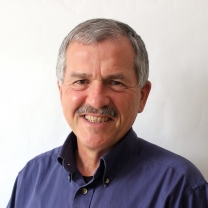 / Working Together on Women's Health
Subscribe
/ Working Together on Women's Health
Subscribe

Policymakers cannot create effective policy if they are not hearing from a wide range of practitioners and consumers alike. To that end, Lifecycle WomanCare (LWC), a nonprofit health organization in Bryn Mawr, Pennsylvania is sponsoring a State of Women’s Health Symposium on April 25th. Women’s health advocate, editor, and consultant Lesley S. Curtis interviewed Kathy Boockvar, recent former Executive Director of LWC and Senior Advisor to the Pennsylvania Governor on Election Modernization, about this unique event that brings practitioners and policymakers together.
Lesley S. Curtis: Every year Lifecycle WomanCare hosts a State of Women’s Health Symposium. Could you tell us more about the event?
Kathy Boockvar: The symposium provides a collaborative forum featuring providers, policymakers, and leaders. Attendees will explore and discuss critical issues of health and healthcare facing women, non-binary individuals, and their families. Hundreds of very engaged attendees representing a wide spectrum of stakeholders congregate to discuss and strategize about these issues, including nonprofit leaders, doctors, nurses, midwives, hospital administrators, officials, advocates, business leaders, students, consumers, and more. Discourse has included such critical areas as health disparities, the Affordable Care Act and other models of healthcare coverage, integrative healthcare, collaborative models of care, social and environmental determinants of health, and economic factors such as paid family and sick leave. It is unique, and each year the participants continue to ask LWC to add more opportunities for discussion.
Consequently, this year the program will expand, adding five facilitated interactive workshops to allow leaders and attendees to delve further into the topics our community has identified as the most critical at this time. The symposium will kick off with a luncheon featuring Anita Woodley, an Emmy-award winning healthcare Edu-tainer. Participants will then break into two groups to take part in a series of workshop options. LWC’s symposium will conclude with a keynote by Loren Robinson, MD, MSHP, the Deputy Secretary for Health Promotion and Disease Prevention for the Commonwealth of Pennsylvania and a cocktail reception.
LC: What made you first want to start the event?
KB: Often, we congregate in silos, and conferences and forums tend to support these silos. One often finds conferences for particular practitioners, like doctors or midwives or advocates, but there are very few symposiums that bring together experts and stakeholders from a wide mix of professional backgrounds, to discuss healthcare practice and policy intertwined. LWC believes strongly in the impact of cross-cultivation, synergies, and integrative partnerships among different types of providers and services, and we wanted to create a forum that would allow us all to learn from other models and bring those models back to our own practices. In short, we wanted to break down the silos. LWC also wanted to expand knowledge about the midwifery model of care that it offers with other practices and types of care and services, as we believe so strongly in the power and positive outcomes of this model.
LC: How does Lifecycle WomanCare help foster this collaborative conversation?
KB: Everything at Lifecycle WomanCare goes back to its philosophy and commitment to the midwifery model of care, which is based on the knowledge that strengthening the relationships between individuals and their providers is an essential piece of delivering exceptional health outcomes. Experience has shown us that women benefit most in every stage of their lives—from adolescence to menopause and beyond—when they are supported and invited to play an active role in making decisions about their care. Birth, for example, does not always go as planned, but when women feel supported, informed and empowered through relationship-based care, the process can be more positive for the whole family. One of our clients, Heather Galante, beautifully articulated the value of LWC’s approach for her and her family when her son was born: “[The midwives] explained my options, listened to my concerns, and supported me in my decision[s].... [A]t every step, the midwives gave me compassion, empowerment, and respect—values that are at the core of human nature. ... I was not disappointed by the interventions because I had learned to listen to myself and honor my needs through my appointments and classes at LWC.”
LWC’s team of providers believes passionately in the intrinsic value of relationship-based healthcare. LWC is dedicated to advancing this model of healthcare for all women and non-binary individuals, not just its own clients. This mission, combined with LWC's commitment to integrative healthcare and collaborative models of care that recognize that patients are best served by a partnership of practitioners and service providers bringing different skills and services, made LWC well-positioned to initiate this conversation.
LC: What is the advantage of bringing policymakers into conversation with providers?
KB: Part and parcel of LWC’s belief in collaborative and integrative models of care is the notion that policy and practice are and should be intertwined. Policymakers cannot create effective policy if they are not hearing from a wide mix of practitioners and consumers on the impact of these policies. This goes back again to wanting to break down the silos. Policymakers represent all of us, and in order to effectively represent us, they need to hear from us—consumers and multiple types of practitioners and facilities.
Dr. Loren Robinson, one of our keynote speakers, explained the need for cross-specialty collaboration well: “At the Pennsylvania Department of Health, we can work with legislators to create policies and laws related to the opioid crisis, for example. But who does the implementation? The providers: nurses, doctors, patients, and our healthcare infrastructure. Even before that though, how do we know what policies will work? We must hear from healthcare providers at local, state, and national levels in order to create policies that help them serve their patients better. Take, for example, the Prescription Drug Monitoring Program (PDMP). As a provider, my colleagues and I can use this valuable tool to better understand what medications a patient has been prescribed and in what ways they have been prescribed. As a policymaker, I am part of a team that is now better able to track the total number of opioid prescriptions issued in the commonwealth of Pennsylvania. This helps us better serve the residents of Pennsylvania. The intersection of policy and practice has as its foundation the constant exchange of information between provider and policymaker.”
This symposium provides a unique opportunity for all of us because it includes in the conversation types of practitioners who are not always heard. To learn more about the State of Women’s Health Symposium, please visit its site.
Lesley S. Curtis, Ph.D., is an author, translator, and editor, known for works such as Stella: A Novel of the Haitian Revolution (NYU Press, 2015) and Fanny Reybaud’s Quatre Nouvelles Antillaises (L’Harmattan, 2014). A women’s health advocate, she is also the co-founder, with Ben Utter, of Vital: A Health Humanities Magazine. She is owner and principal consultant at Sagely, a strategic communications firm.
Kathy Boockvar, J.D. is the recent former Executive Director of Lifecycle WomanCare, one of the oldest continually operating independent birth centers in the U.S. For the last four years, hand and hand with her wonderful team, Kathy has worked to expand access to and provide the highest quality of health care to women and families, and to build a stronger voice for families in government and in the community.
Since March 5, 2018, Kathy has been honored to serve as the Senior Advisor to the Governor on Election Modernization in Pennsylvania. She is an attorney with an extensive background in public interest law and policy, election administration, and nonprofit healthcare administration. She has spent her career leading and advancing programs and policies in support of individuals and families.
Photo Credit: Monkey Business Images, “Pregnant woman talking to midwife,” via Shutterstock.





